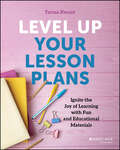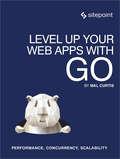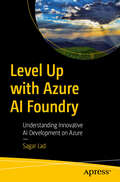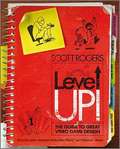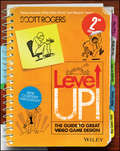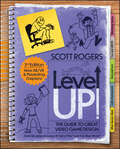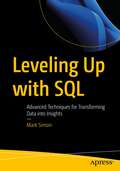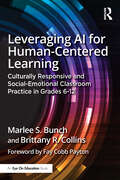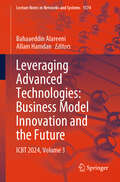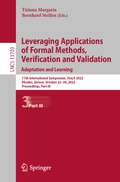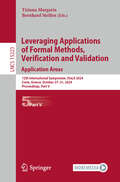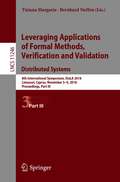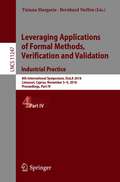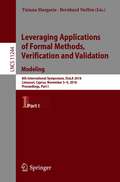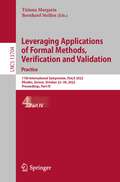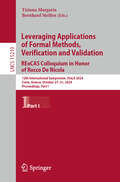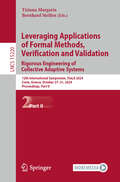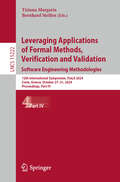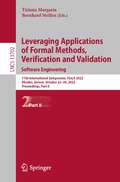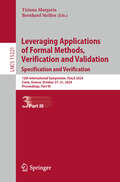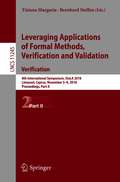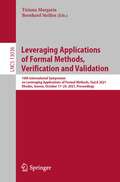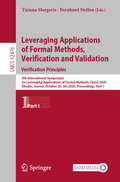- Table View
- List View
Level Up Your Lesson Plans: Ignite the Joy of Learning with Fun and Educational Materials
by Teresa K. KwantLevel Up Your Lesson Plans: Ignite the Joy of Learning with Fun and Educational Materials Tired of spending hours on lesson plans? Discover strategies to streamline your planning process and maximize student engagement. Access exclusive templates, tools, and resources designed to help you create effective lessons that align with learning standards. Save time, reduce stress, and elevate your teaching game. In Level Up Your Lesson Plans: Ignite the Joy of Learning with Fun and Educational Materials, teacher Teresa Kwant delivers an exciting and practical instruction book for teachers interested in adding fun into their lesson plans, without sacrificing educational strategies. The book walks you through how to transform your teaching materials and lessons into interactive, collaborative and enjoyable learning experiences for both the teacher and students. Kwant draws on personal and professional experiences to give actionable steps you can implement immediately. You'll also find: Tips for aligning your lessons with standards to make them both fun and engaging Strategies for building your own instructional plans for daily success with student learning Techniques to develop your own lessons plans efficiently, and with high engagement Perfect for new and veteran classroom teachers looking for student engagement tips, Level Up Your Lesson Plans is a hands-on playbook for planning smarter, so you teach better. This book is the hands-on, creative teaching playbook the education community has been waiting for.
Level Up Your Web Apps With Go: Performance, Concurrency, Scalability
by Mal CurtisGo is an open-source language from Google that's a bit like C. Designed for programmer productivity, it's got a clean syntax, and emphasizes concurrency. This book gives you all you need to use Go in your web applications. You'll learn the basic concepts - language structures, the standard library, and Go tools - then tackle more advanced features like concurrency concepts, testing methodologies, and package structures. At each step, you'll get advice for better coding in Go. You'll see how to structure projects, how to use concurrency effectively, and best practices for testing - as well as many valuable hints and tips gleaned from real world experience of developing web applications with Go. You'll learn: Get to grips with Go language basics (types, the standard library, tools)Use Go with HTTPWork with imagesUnderstand concurrencyTest effectivelyMaster deploymentAnd much more ...
Level Up with Azure AI Foundry: Understanding Innovative AI Development on Azure
by Sagar LadHarness the power of AI through Microsoft&’s Azure platform, AI Foundry. Azure AI Foundry includes a versatile and powerful suite of tools designed to cater to the needs of developers, data scientists, and organizations aiming to leverage AI for transformative outcomes. This book demystifies the Azure AI Foundry ecosystem by offering a comprehensive overview of its foundational concepts, tools, and services. The book begins with an overview of generative AI, detailing its concepts, architecture, and differences from traditional AI. You will then learn Azure AI Foundry Prompt Flow, covering its features, setup, and navigation. In addition, you will explore how to create, debug Prompt Flow, and build intelligent multi-modal AI applications. You will also understand responsible AI and governance with AI Foundry. After reading this book, you will understand how to utilize Azure&’s AI tools to create impactful solutions that can drive efficiency, enhance decision making, and unlock new opportunities in your field. What You Will Learn: Get up to speed on the fundamentals of generative AI Understand the essential components of Azure AI Foundry, including Prompt Flow, multi-modal applicatios, and other key tools for building intellgent applications Integrate AI capabilities into existing systems and workflows Know the latest trends and innovations in AI and how Azure AI Foundry can be used to drive cutting-edge solutions across various industries Manage security and governance of your AI application with AI Foundry Who This Book Is For Data professionals, AI enthusiasts, enterprise leaders, and aspiring data scientists keen on exploring Azure AI Foundry
Level Up!
by Scott RogersDesign and build cutting-edge video games with help from video game expert Scott Rogers!If you want to design and build cutting-edge video games but aren't sure where to start, then this is the book for you. Written by leading video game expert Scott Rogers, who has designed the hits Pac Man World, Maxim vs. Army of Zin, and SpongeBob Squarepants, this book is full of Rogers's wit and imaginative style that demonstrates everything you need to know about designing great video games.Features an approachable writing style that considers game designers from all levels of expertise and experienceCovers the entire video game creation process, including developing marketable ideas, understanding what gamers want, working with player actions, and moreOffers techniques for creating non-human characters and using the camera as a characterShares helpful insight on the business of design and how to create design documentsSo, put your game face on and start creating memorable, creative, and unique video games with this book!
Level Up! The Guide to Great Video Game Design
by Scott RogersWant to design your own video games? Let expert Scott Rogers show you how!If you want to design and build cutting-edge video games but aren't sure where to start, then the SECOND EDITION of the acclaimed Level Up! is for you! Written by leading video game expert Scott Rogers, who has designed the hits Pac Man World, Maximo and SpongeBob Squarepants, this updated edition provides clear and well-thought out examples that forgo theoretical gobbledygook with charmingly illustrated concepts and solutions based on years of professional experience.Level Up! 2nd Edition has been NEWLY EXPANDED to teach you how to develop marketable ideas, learn what perils and pitfalls await during a game's pre-production, production and post-production stages, and provide even more creative ideas to serve as fuel for your own projects including:Developing your game design from the spark of inspiration all the way to productionLearning how to design the most exciting levels, the most precise controls, and the fiercest foes that will keep your players challengedCreating games for mobile and console systems - including detailed rules for touch and motion controlsMonetizing your game from the design upWriting effective and professional design documents with the help of brand new examplesLevel Up! 2nd Edition is includes all-new content, an introduction by David "God of War" Jaffe and even a brand-new chili recipe -making it an even more indispensable guide for video game designers both "in the field" and the classroom.Grab your copy of Level Up! 2nd Edition and let's make a game!
Level Up! The Guide to Great Video Game Design
by Scott RogersWant to design your own video games? Let expert Scott Rogers show you how! If you want to design and build cutting-edge video games but aren’t sure where to start, then the SECOND EDITION of the acclaimed Level Up! is for you! Written by leading video game expert Scott Rogers, who has designed the hits Pac Man World, Maximo and SpongeBob Squarepants, this updated edition provides clear and well-thought out examples that forgo theoretical gobbledygook with charmingly illustrated concepts and solutions based on years of professional experience. Level Up! 2nd Edition has been NEWLY EXPANDED to teach you how to develop marketable ideas, learn what perils and pitfalls await during a game’s pre-production, production and post-production stages, and provide even more creative ideas to serve as fuel for your own projects including: Developing your game design from the spark of inspiration all the way to production Learning how to design the most exciting levels, the most precise controls, and the fiercest foes that will keep your players challenged Creating games for mobile and console systems – including detailed rules for touch and motion controls Monetizing your game from the design up Writing effective and professional design documents with the help of brand new examples Level Up! 2nd Edition is includes all-new content, an introduction by David “God of War” Jaffe and even a brand-new chili recipe –making it an even more indispensable guide for video game designers both “in the field” and the classroom. Grab your copy of Level Up! 2nd Edition and let’s make a game!
Level Up! The Guide to Great Video Game Design
by Scott RogersWant to design your own video games? Let expert Scott Rogers show you how! If you want to design and build cutting-edge video games but aren't sure where to start, then the THIRD EDITION of the acclaimed Level Up! is for you! Written by leading video game expert Scott Rogers, who has designed for the hits Pac-Man World, God of War, Maximo and SpongeBob SquarePants, this updated edition provides clear and well-thought-out examples that forgo theoretical gobbledygook with charmingly illustrated concepts and solutions based on years of professional experience. Level Up! 3rd Edition has been NEWLY EXPANDED to teach you how to develop marketable ideas, learn what perils and pitfalls await during a game's pre-production, production and post-production stages, and provide even more creative ideas to serve as fuel for your own projects including: Developing your game design from the spark of inspiration all the way to production Learning how to design the most exciting levels, the most precise controls, and the fiercest foes that will keep your players challenged Creating games for console, mobile, and VR/AR/MR—including detailed rules for game play design and controls Monetizing your game from the design up Play test your game to get the best feedback from your players Level Up! 3rd Edition features all-new content, including two new chapters and even a brand-new chili recipe—making it the most indispensable guide for video game designers both “in the field” and the classroom.
Leveling Up with SQL: Advanced Techniques for Transforming Data into Insights
by Mark SimonLearn to write SQL queries to select and analyze data, and improve your ability to manipulate data. This book will help you take your existing skills to the next level. Author Mark Simon kicks things off with a quick review of basic SQL knowledge, followed by a demonstration of how efficient SQL databases are designed and how to extract just the right data from them. You’ll then learn about each individual table’s structure and how to work with the relationships between tables. As you progress through the book, you will learn more sophisticated techniques such as using common table expressions and subqueries, analyzing your data using aggregate and windowing functions, and how to save queries in the form of views and other methods. This book employs an accessible approach to work through a realistic sample, enabling you to learn concepts as they arise to improve parts of the database or to work with the data itself. After completing this book, you will have a more thorough understanding of database structure and how to use advanced techniques to extract, manage, and analyze data. What Will You Learn Gain a stronger understanding of database design principles, especially individual tablesUnderstand the relationships between tablesUtilize techniques such as views, subqueries, common table expressions, and windowing functions Who Is This Book For: SQL Databases users who want to improve their knowledge and techniques.
Leveling the Playing Field: Improving Technology Access and Design for People with Intellectual Disabilities
by Presidents Committee for People w/Intellectual DisabilitiesThe President's Committee for People with Intellectual Disabilities is honored to advise the President and the Secretary of Health and Human Services about the role of technology in improving the quality of life for people with ID and ensuring their full citizenship rights. A new generation of technologies continues to redefine, at an accelerated pace, how we all live, grow, and excel. The same should be true for people with ID. Access to technology is critical for people with ID to fully engage in the everyday life of our society.
Leveraging AI for Human-Centered Learning: Culturally Responsive and Social-Emotional Classroom Practice in Grades 6-12
by Marlee S. Bunch Brittany R. CollinsLeveraging AI for Human-Centered Learning provides intentional approaches to the integration of artificial intelligence tools into middle and high school classrooms, specifically to foster equity and social-emotional wellbeing. The overlap of AI with today’s schools poses pivotal questions about ethics, morality, inclusion, and human learning at a time when students are already reckoning with public health crises, systemic injustice, and other connected challenges. This book helps teachers examine the pros and cons of artificial intelligence—as used by both educators and students—as well as its implications for meaningful culturally responsive teaching and social-emotional learning efforts. Featuring activities, lesson plans, and discussion and writing prompts for use with adolescent learners, each chapter offers concrete pedagogical approaches and instructional innovations that align technological changes with learning objectives in ways that advance, rather than replace or neutralize, attention to equity and well-being.
Leveraging Advanced Technologies: ICBT 2024, Volume 3 (Lecture Notes in Networks and Systems #1574)
by Allam Hamdan Bahaaeddin AlareeniThis book examines how next-generation tools such as artificial intelligence, blockchain, and the Internet of Things are transforming not only the way companies operate, but also how they create value, define strategy, and drive growth. As emerging technologies reshape the business landscape, innovation has become a necessity rather than a choice. It offers an in-depth exploration of the evolving business model innovation landscape, combining diverse methodologies and real-world industry cases to illustrate the powerful intersection of technology and strategic transformation. Through practical insights, evidence-based analysis, and compelling case studies, this book equips decision-makers to adapt, innovate, and lead in a rapidly evolving digital environment. What You&’ll Discover: · The role of AI, blockchain, and IoT in reinventing business models · Frameworks and strategies for leveraging disruptive technologies · Policy and managerial insights to guide innovation in practice &
Leveraging Applications of Formal Methods, Verification and Validation. Adaptation and Learning: 11th International Symposium, ISoLA 2022, Rhodes, Greece, October 22–30, 2022, Proceedings, Part III (Lecture Notes in Computer Science #13703)
by Tiziana Margaria Bernhard SteffenThis four-volume set LNCS 13701-13704 constitutes contributions of the associated events held at the 11th International Symposium on Leveraging Applications of Formal Methods, ISoLA 2022, which took place in Rhodes, Greece, in October/November 2022. The contributions in the four-volume set are organized according to the following topical sections: specify this - bridging gaps between program specification paradigms; x-by-construction meets runtime verification; verification and validation of concurrent and distributed heterogeneous systems; programming - what is next: the role of documentation; automated software re-engineering; DIME day; rigorous engineering of collective adaptive systems; formal methods meet machine learning; digital twin engineering; digital thread in smart manufacturing; formal methods for distributed computing in future railway systems; industrial day.
Leveraging Applications of Formal Methods, Verification and Validation. Application Areas: 12th International Symposium, ISoLA 2024, Crete, Greece, October 27–31, 2024, Proceedings, Part V (Lecture Notes in Computer Science #15223)
by Tiziana Margaria Bernhard SteffenThe ISoLA 2024 proceedings constitutes contributions of the associated events held at the 12th International Symposium on Leveraging Applications of Formal Methods, ISoLA 2024, which took place in Crete, Greece, in October 2024. ISoLA 2024 provides a forum for developers, users, and researchers to discuss issues related to the adoption and use of rigorous tools and methods for the specification, analysis, verification, certification, construction, test, and maintenance of systems from the point of view of their different application domains.
Leveraging Applications of Formal Methods, Verification and Validation. Distributed Systems: 8th International Symposium, ISoLA 2018, Limassol, Cyprus, November 5-9, 2018, Proceedings, Part III (Lecture Notes in Computer Science #11246)
by Tiziana Margaria Bernhard SteffenThe four-volume set LNCS 11244, 11245, 11246, and 11247 constitutes the refereed proceedings of the 8th International Symposium on Leveraging Applications of Formal Methods, Verification and Validation, ISoLA 2018, held in Limassol, Cyprus, in October/November 2018. The papers presented were carefully reviewed and selected for inclusion in the proceedings. Each volume focusses on an individual topic with topical section headings within the volume:Part I, Modeling: Towards a unified view of modeling and programming; X-by-construction, STRESS 2018.Part II, Verification: A broader view on verification: from static to runtime and back; evaluating tools for software verification; statistical model checking; RERS 2018; doctoral symposium.Part III, Distributed Systems: rigorous engineering of collective adaptive systems; verification and validation of distributed systems; and cyber-physical systems engineering. Part IV, Industrial Practice: runtime verification from the theory to the industry practice; formal methods in industrial practice - bridging the gap; reliable smart contracts: state-of-the-art, applications, challenges and future directions; and industrial day.
Leveraging Applications of Formal Methods, Verification and Validation. Industrial Practice: 8th International Symposium, Isola 2018, Limassol, Cyprus, November 5-9, 2018, Proceedings, Part Iv (Lecture Notes in Computer Science #11247)
by Tiziana Margaria Bernhard SteffenThe four-volume set LNCS 11244, 11245, 11246, and 11247 constitutes the refereed proceedings of the 8th International Symposium on Leveraging Applications of Formal Methods, Verification and Validation, ISoLA 2018, held in Limassol, Cyprus, in October/November 2018. The papers presented were carefully reviewed and selected for inclusion in the proceedings. Each volume focusses on an individual topic with topical section headings within the volume:Part I, Modeling: Towards a unified view of modeling and programming; X-by-construction, STRESS 2018.Part II, Verification: A broader view on verification: from static to runtime and back; evaluating tools for software verification; statistical model checking; RERS 2018; doctoral symposium.Part III, Distributed Systems: rigorous engineering of collective adaptive systems; verification and validation of distributed systems; and cyber-physical systems engineering. Part IV, Industrial Practice: runtime verification from the theory to the industry practice; formal methods in industrial practice - bridging the gap; reliable smart contracts: state-of-the-art, applications, challenges and future directions; and industrial day.
Leveraging Applications of Formal Methods, Verification and Validation. Modeling: 8th International Symposium, ISoLA 2018, Limassol, Cyprus, November 5-9, 2018, Proceedings, Part I (Lecture Notes in Computer Science #11244)
by Tiziana Margaria Bernhard SteffenThe four-volume set LNCS 11244, 11245, 11246, and 11247 constitutes the refereed proceedings of the 8th International Symposium on Leveraging Applications of Formal Methods, Verification and Validation, ISoLA 2018, held in Limassol, Cyprus, in October/November 2018. The papers presented were carefully reviewed and selected for inclusion in the proceedings. Each volume focusses on an individual topic with topical section headings within the volume:Part I, Modeling: Towards a unified view of modeling and programming; X-by-construction, STRESS 2018.Part II, Verification: A broader view on verification: from static to runtime and back; evaluating tools for software verification; statistical model checking; RERS 2018; doctoral symposium.Part III, Distributed Systems: rigorous engineering of collective adaptive systems; verification and validation of distributed systems; and cyber-physical systems engineering. Part IV, Industrial Practice: runtime verification from the theory to the industry practice; formal methods in industrial practice - bridging the gap; reliable smart contracts: state-of-the-art, applications, challenges and future directions; and industrial day.
Leveraging Applications of Formal Methods, Verification and Validation. Practice: 11th International Symposium, ISoLA 2022, Rhodes, Greece, October 22–30, 2022, Proceedings, Part IV (Lecture Notes in Computer Science #13704)
by Tiziana Margaria Bernhard SteffenThis four-volume set LNCS 13701-13704 constitutes contributions of the associated events held at the 11th International Symposium on Leveraging Applications of Formal Methods, ISoLA 2022, which took place in Rhodes, Greece, in October/November 2022. The contributions in the four-volume set are organized according to the following topical sections: specify this - bridging gaps between program specification paradigms; x-by-construction meets runtime verification; verification and validation of concurrent and distributed heterogeneous systems; programming - what is next: the role of documentation; automated software re-engineering; DIME day; rigorous engineering of collective adaptive systems; formal methods meet machine learning; digital twin engineering; digital thread in smart manufacturing; formal methods for distributed computing in future railway systems; industrial day.
Leveraging Applications of Formal Methods, Verification and Validation. REoCAS Colloquium in Honor of Rocce De Nicola: 12th International Symposium, ISoLA 2024, Crete, Greece, October 27–31, 2024, Proceedings, Part I (Lecture Notes in Computer Science #15219)
by Tiziana Margaria Bernhard SteffenThe ISoLA 2024 proceedings constitutes contributions of the associated events held at the 12th International Symposium on Leveraging Applications of Formal Methods, ISoLA 2024, which took place in Crete, Greece, in October 2024. ISoLA 2024 provides a forum for developers, users, and researchers to discuss issues related to the adoption and use of rigorous tools and methods for the specification, analysis, verification, certification, construction, test, and maintenance of systems from the point of view of their different application domains. This volume, Part I, contains the proceedings of the Colloquium in honor of Rocco De Nicola’s 70th birthday, held jointly with the ISOLA 2024’s track on REoCAS (Rigorous Engineering of Collective Adaptive Systems). Rocco De Nicola has significantly contributed to collective adaptive systems through novel approaches for their formal specification, analysis, and verification. The Colloquium features one homage paper and 23 contributions from invited authors who reflected upon these developments within the context of Rocco’s much broader legacy in concurrency theory, distributed systems, domain-specific languages, service-oriented computing, and formal methods, exploring his recent contributions to cybersecurity.
Leveraging Applications of Formal Methods, Verification and Validation. Rigorous Engineering of Collective Adaptive Systems: 12th International Symposium, ISoLA 2024, Crete, Greece, October 27–31, 2024, Proceedings, Part II (Lecture Notes in Computer Science #15220)
by Tiziana Margaria Bernhard SteffenThe ISoLA 2024 proceedings constitutes contributions of the associated events held at the 12th International Symposium on Leveraging Applications of Formal Methods, ISoLA 2024, which took place in Crete, Greece, in October 2024. ISoLA 2024 provides a forum for developers, users, and researchers to discuss issues related to the adoption and use of rigorous tools and methods for the specification, analysis, verification, certification, construction, test, and maintenance of systems from the point of view of their different application domains.
Leveraging Applications of Formal Methods, Verification and Validation. Software Engineering Methodologies: 12th International Symposium, ISoLA 2024, Crete, Greece, October 27–31, 2024, Proceedings, Part IV (Lecture Notes in Computer Science #15222)
by Tiziana Margaria Bernhard SteffenThe ISoLA 2024 proceedings constitutes contributions of the associated events held at the 12th International Symposium on Leveraging Applications of Formal Methods, ISoLA 2024, which took place in Crete, Greece, in October 2024. ISoLA 2024 provides a forum for developers, users, and researchers to discuss issues related to the adoption and use of rigorous tools and methods for the specification, analysis, verification, certification, construction, test, and maintenance of systems from the point of view of their different application domains.
Leveraging Applications of Formal Methods, Verification and Validation. Software Engineering: 11th International Symposium, ISoLA 2022, Rhodes, Greece, October 22–30, 2022, Proceedings, Part II (Lecture Notes in Computer Science #13702)
by Tiziana Margaria Bernhard SteffenThis four-volume set LNCS 13701-13704 constitutes contributions of the associated events held at the 11th International Symposium on Leveraging Applications of Formal Methods, ISoLA 2022, which took place in Rhodes, Greece, in October/November 2022. The contributions in the four-volume set are organized according to the following topical sections: specify this - bridging gaps between program specification paradigms; x-by-construction meets runtime verification; verification and validation of concurrent and distributed heterogeneous systems; programming - what is next: the role of documentation; automated software re-engineering; DIME day; rigorous engineering of collective adaptive systems; formal methods meet machine learning; digital twin engineering; digital thread in smart manufacturing; formal methods for distributed computing in future railway systems; industrial day.
Leveraging Applications of Formal Methods, Verification and Validation. Specification and Verification: 12th International Symposium, ISoLA 2024, Crete, Greece, October 27–31, 2024, Proceedings, Part III (Lecture Notes in Computer Science #15221)
by Tiziana Margaria Bernhard SteffenThe ISoLA 2024 proceedings constitutes contributions of the associated events held at the 12th International Symposium on Leveraging Applications of Formal Methods, ISoLA 2024, which took place in Crete, Greece, in October 2024. ISoLA 2024 provides a forum for developers, users, and researchers to discuss issues related to the adoption and use of rigorous tools and methods for the specification, analysis, verification, certification, construction, test, and maintenance of systems from the point of view of their different application domains.
Leveraging Applications of Formal Methods, Verification and Validation. Verification: 5th International Symposium, Isola 2012, Heraklion, Crete, Greece, October 15-18, 2012, Proceedings, Part Ii (Lecture Notes in Computer Science #7610)
by Tiziana Margaria Bernhard SteffenThe four-volume set LNCS 11244, 11245, 11246, and 11247 constitutes the refereed proceedings of the 8th International Symposium on Leveraging Applications of Formal Methods, Verification and Validation, ISoLA 2018, held in Limassol, Cyprus, in October/November 2018. The papers presented were carefully reviewed and selected for inclusion in the proceedings. Each volume focusses on an individual topic with topical section headings within the volume:Part I, Modeling: Towards a unified view of modeling and programming; X-by-construction, STRESS 2018.Part II, Verification: A broader view on verification: from static to runtime and back; evaluating tools for software verification; statistical model checking; RERS 2018; doctoral symposium.Part III, Distributed Systems: rigorous engineering of collective adaptive systems; verification and validation of distributed systems; and cyber-physical systems engineering. Part IV, Industrial Practice: runtime verification from the theory to the industry practice; formal methods in industrial practice - bridging the gap; reliable smart contracts: state-of-the-art, applications, challenges and future directions; and industrial day.
Leveraging Applications of Formal Methods, Verification and Validation: 10th International Symposium on Leveraging Applications of Formal Methods, ISoLA 2021, Rhodes, Greece, October 17–29, 2021, Proceedings (Lecture Notes in Computer Science #13036)
by Tiziana Margaria Bernhard SteffenThis book constitutes contributions of the ISoLA 2021 associated events. Altogether, ISoLA 2021 comprises contributions from the proceedings originally foreseen for ISoLA 2020 collected in 4 volumes, LNCS 12476: Verification Principles, LNCS 12477: Engineering Principles, LNCS 12478: Applications, and LNCS 12479: Tools and Trends. The contributions included in this volume were organized in the following topical sections: 6th International School on Tool-Based Rigorous Engineering of Software Systems; Industrial Track; Programming: What is Next; Software Verification Tools; Rigorous Engineering of Collective Adaptive Systems.
Leveraging Applications of Formal Methods, Verification and Validation: 9th International Symposium on Leveraging Applications of Formal Methods, ISoLA 2020, Rhodes, Greece, October 20–30, 2020, Proceedings, Part I (Lecture Notes in Computer Science #12476)
by Tiziana Margaria Bernhard SteffenThe three-volume set LNCS 12476 - 12478 constitutes the refereed proceedings of the 9th International Symposium on Leveraging Applications of Formal Methods, ISoLA 2020, which was planned to take place during October 20–30, 2020, on Rhodes, Greece. The event itself was postponed to 2021 due to the COVID-19 pandemic. The papers presented were carefully reviewed and selected for inclusion in the proceedings. Each volume focusses on an individual topic with topical section headings within the volume:Part I, Verification Principles: Modularity and (De-)Composition in Verification; X-by-Construction: Correctness meets Probability; 30 Years of Statistical Model Checking; Verification and Validation of Concurrent and Distributed Systems. Part II, Engineering Principles: Automating Software Re-Engineering; Rigorous Engineering of Collective Adaptive Systems. Part III, Applications: Reliable Smart Contracts: State-of-the-art, Applications, Challenges and Future Directions; Automated Verification of Embedded Control Software; Formal methods for DIStributed COmputing in future RAILway systems.
